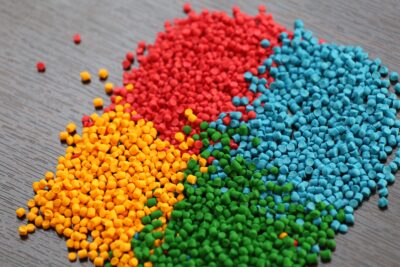PVC Compounds : The Building Blocks of Modern Manufacturing

PVC compounds
In the bustling world of manufacturing , efficiency, versatility, and innovation are key to staying ahead. Polyvinyl Chloride (PVC) compounds have emerged as a cornerstone in this dynamic environment, offering manufacturers a reliable and adaptable material that caters to a multitude of applications. This article explores the pivotal role of PVC compounds in the manufacturing sector.
The Essence of PVC Compounds
PVC is a synthetic plastic polymer that has become one of the most extensively utilized materials globally. Its widespread adoption can be attributed to its unique properties, which are further enhanced through the process of compounding. PVC compounding involves blending PVC resin with various additives to tailor the material’s characteristics to specific needs.
Compounding for Customization
The art of PVC compounding lies in the precise selection and combination of additives. These can include plasticizers for flexibility, stabilizers for thermal stability, fillers for cost-effectiveness, pigments for color, and lubricants for processing ease. The result is a custom PVC compound that meets the exact requirements of a manufacturing application.
Manufacturing Applications of PVC Compounds
PVC compounds are integral to numerous manufacturing processes due to their adaptability:
Construction Materials: Rigid PVC compounds are used to produce pipes, fittings, profiles, and siding. Their durability and resistance to corrosion make them ideal for the construction industry.
Medical Devices: Medical-grade PVC compounds are crucial in creating flexible containers, tubing, and disposable devices, prized for their non-reactivity and safety.
Automotive Industry: PVC compounds find their way into underbody coatings, interior trims, and wire insulation in vehicles, appreciated for their durability and environmental resistance.
Consumer Goods: The flexibility and aesthetic appeal of PVC compounds make them suitable for products ranging from packaging to footwear.
Technological Advancements in PVC Compounding
The manufacturing sector continually seeks advancements in PVC compounding technology to enhance product quality and environmental sustainability. Innovations include the development of lead-free and phthalate-free stabilizers, bio-based plasticizers, and the incorporation of recycled PVC materials, all contributing to a greener manufacturing process.
Conclusion
PVC compounds are the unsung heroes of the manufacturing world, providing solutions that are both effective and sustainable. As technology progresses, the potential applications of PVC compounds continue to expand, solidifying their position as a vital component in the manufacturing industry’s future.
you can purchase our products here
